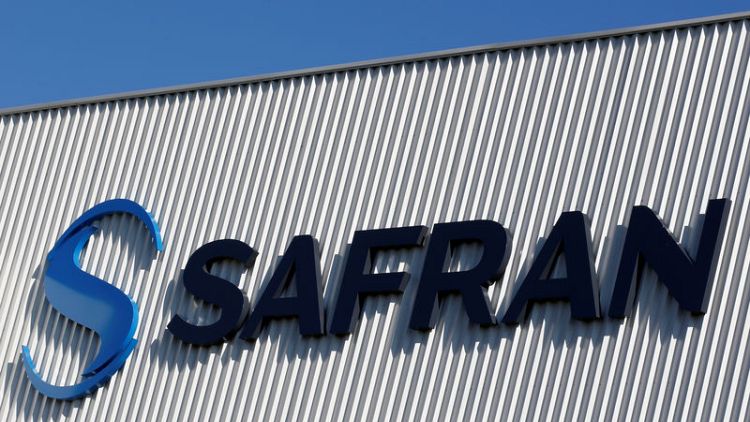SACLAY, France (Reuters) - France's Safran SA <SAF.PA> has shelved plans to install an electric taxiing system on Airbus <AIR.PA> A320 jets after the planemaker halted discussions on the project, it chief executive said.
The system relies on electric motors embedded in landing gear to allow planes to push back and taxi without their jet engines running - saving fuel, curbing emissions and ending last-minute delays while waiting for airport tugs.
Several such projects emerged during a spike in oil prices earlier this decade and have come to the fore again due to pressure to reduce emissions, but development has been hindered by weaker oil prices and shifts in jet flying patterns.
Safran acknowledges the system would be uneconomic for long flights because those jets do not spend enough time taxiing to justify carrying the motors, which weigh some 400 kg (882 lb).
But for planes doing six or seven short trips a day and looking to cut extra minutes off turnaround times, the benefits could be worth 4% in lower fuel consumption, the French company said.
Analysts say the trend in single-aisle jets like the A320 has recently, however, been towards longer flights enabled by design improvements.
Safran Chief Executive Philippe Petitcolin said he was "surprised and disappointed" by the Airbus decision, which emerged weeks after Air India became the first airline to use a rival system called TaxiBot, developed by a unit of Israel Aerospace Industries.
"We offered various forms of partnership (to Airbus)," he told reporters.
An Airbus spokesman said the system did not offer enough technical maturity and performance "in its current form."
Airbus continues to explore ways to curb emissions, he added.
Safran had previously worked with Honeywell International Inc <HON.N> on a similar product for Boeing 737 jets but they parted ways due to problems adapting it to the wheels of the slightly smaller airplane.
Wheeltug, a unit of Borealis Exploration Ltd <BOREF.PK>, said in September it had reached agreement with an unidentified party to support Wheeltug, a system allowing the Boeing 737 to taxi forwards and backwards using a motor in the nosewheel.
As part of a wider technology drive, Safran is studying longer-term autonomous systems that could take over a pilot's job of taxiing or ease the workload so that only one pilot is engaged, Safran researchers said on Tuesday.
(Reporting by Tim Hepher; Editing by Richard Chang)



